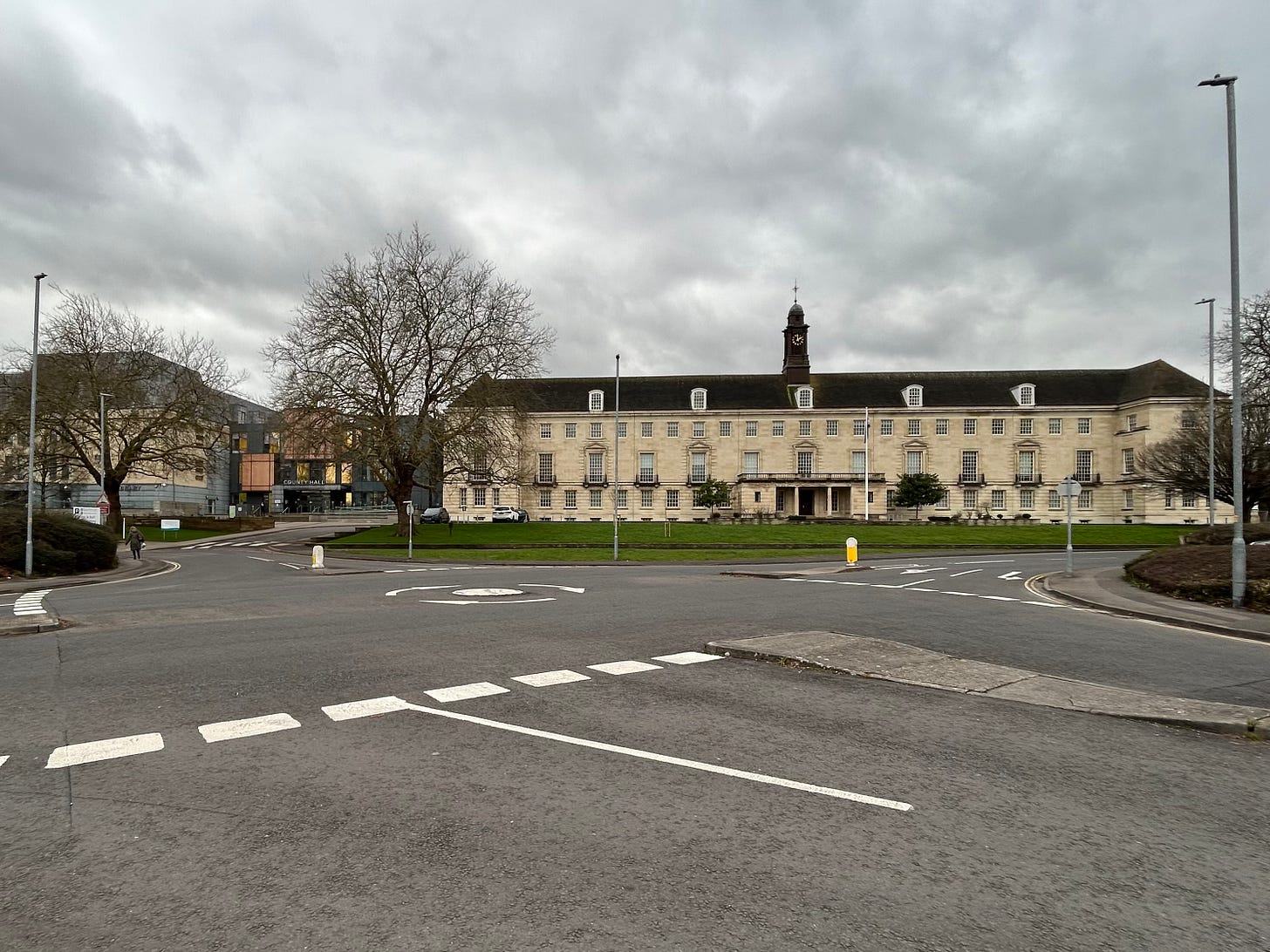The Story Behind English Counties
a divided country
England is divided into counties (so too is the whole UK but I will stick to England for now).
The use of counties can be confusing. On the surface, they might just seem to be areas of the country divided to make it manageable and identifiable. England, however, is a country with a long history and has been subject to changes in rulership and ways of administering it.
The thing that got me thinking about counties is that I live in the county town of Wiltshire. Here in Trowbridge, the administration of the county by local government is based. Many counties include their main city or town name in the name of the county. For example, Derby - Derbyshire, and York - Yorkshire. That got me thinking why is Wiltshire so named?
It turns out that once upon a time, Wilton, which lies close to the City of Salisbury was once the county town. Therefore Wiltonshire became Wiltshire. In the 9th century, it was written Wiltunscir. Wilton was once the capital of the Kingdom of Wessex before England had one ruler.
In 1889, Wilton lost its role as the county town and Trowbridge took its place as it was easily reached by train from other parts of the county. Wiltshire is also regarded as a ceremonial county which means that it also has a lord-lieutenant appointed. There are also some Shrievel counties to which high sheriffs are appointed. Wiltshire has the pleasure of falling into both categories and so has a High Sheriff,1 which is a ceremonial position. The King appoints the Lord-Lieutenant who will have been recommended by the Prime Minister.2
What about the names and formation of some other counties?
Some county names are fairly new and created as administrative centres, such as Greater Manchester, Merseyside, West Midlands and a few others. These do not have county councils, and district councils provide the majority of their services.
Let me get back to some of the interesting names.
Cornwall - Originally a country with its own language. Many Cornish people today put themselves as Cornish before being British. It is recognised as one of the Celtic Nations. Its name, Corn, comes from a Celtic word giving rise the the idea of it being a headland or penisula. The wall part of the name derives from an Old English word meaning foreigner, slave or Brittonic speaker. The Cornish language is slowly being revived having died out in the community at the end of the 18th century.
Kent - Travelling east along the south coast of England we reach the eastern tip of the country and the county of Kent. Once again this could well be a name of Celtic origin. The most likely meaning is coastal district or land on the edge. Kent has been used since at least the 11th century.
Due to invasions of England in times past, the Celtic peoples were found in the west and north. Wales remained Celtic for many centuries as did Scotland. We therefore expect to see names related to the Celtic language in such areas. Cumbria in the far north-west corner of England and bordering Scotland is another such county name.
Somerset - A little further north from Cornwall we come to the large county of Somerset. Where did this get county its name? There is a town in Somerset called Somerton and this could well be the reason. The Old English name is Sumortunsaete, which means “the people living at or dependent on Sumortun, today, Somerton. Along with Wiltshire, Devon and Hampshire, Somerset is one of the oldest existing local governments in the world.
Hampshire - Often shortened to Hants when written as part of an address, Hampshire has its roots in the seaport City of Southampton. The shortening to Hants is explained when we go back to the Domesday Book (1086) where the name Hanstcire is recorded. From 1889 until 1959 it was Southamptonshire.
English people love their county names and sometimes they are very upset when the government makes changes.
In 1974 parts of Somerset and South Gloucestershire were formed into a new county. Avon was born and people hated it! It was named after the River Avon which flows through the area and meets the sea in the Bristol Channel. In 1996 it was finally abolished and the area was split between four unitary authorities. The name can still be found in such organisations as the Avon and Somerset Police.
Every county name has a story to tell, and when I visit places in some of those I haven’t mentioned, I will add details about them.




Well, well. I didn’t know Wiltshire was derived from Wilton. Now you mention it, it seems so obvious! Thank you for the history lesson - it’s much appreciated.